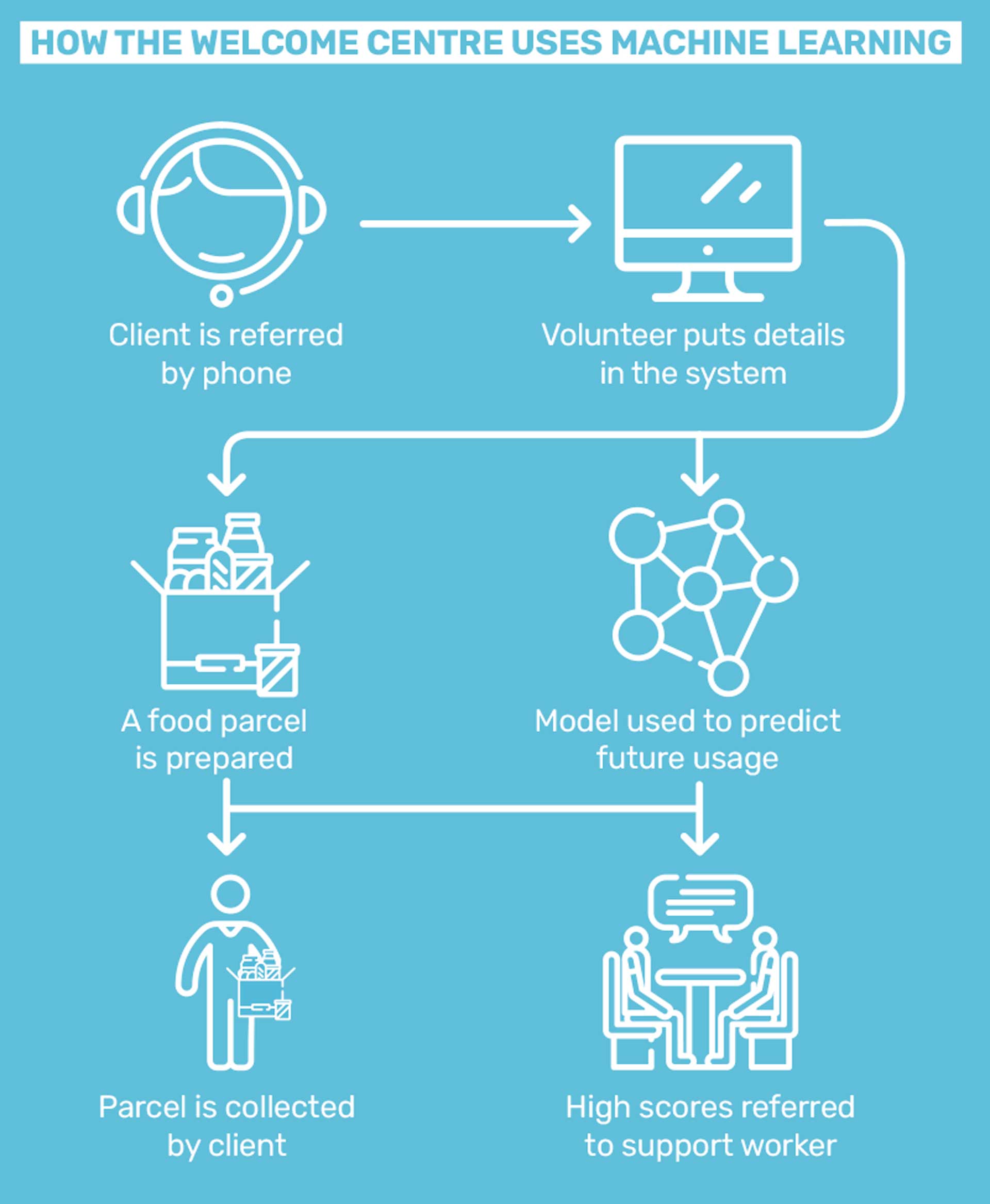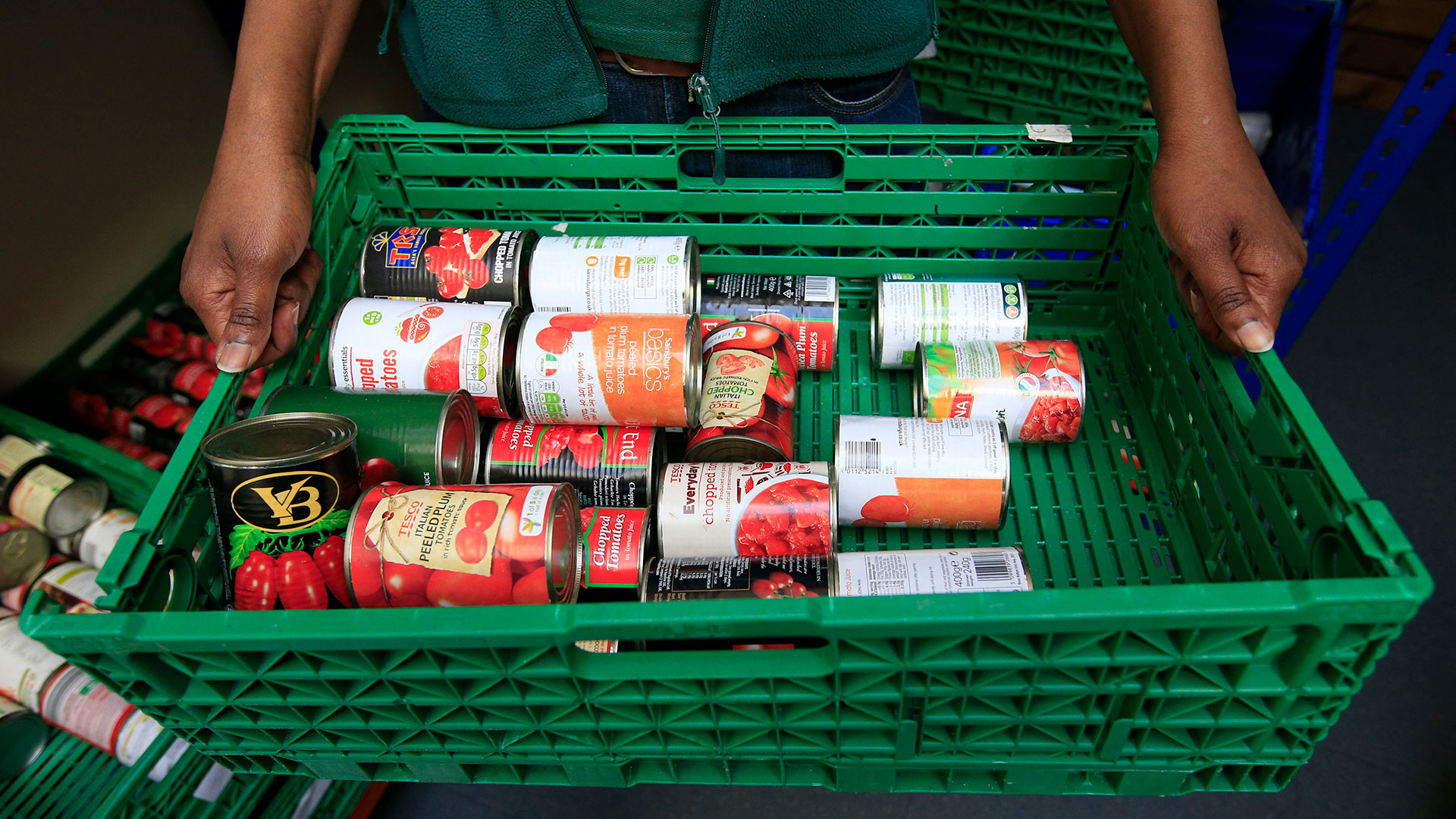We’ve opened our pages up to shout about those who are making a difference to families on the breadline as they deal with feeding their kids an extra meal with no free school dinners on offer in the holidays.
The Welcome Centre told us how they were turning to crowdfunding to help deal with the immediate need, filling food parcels with essentials to feed families from 34 local schools this summer.
But the foodbank is also focusing on prevention – which is an aim The Big Issue shares in our own mission to combat poverty.
They have teamed up with DataKind, a global non-profit that uses data and AI for good, and the Esmée Fairbairn Foundation to create a machine-learning model that evaluates how likely foodbank users are to become dependent on food parcels to survive.
Of the Welcome Centre’s 250 or so clients every week, more than 100 can be new to the service, so the machine-learning tool can assess the likelihood of the new intake’s dependency and decide whether to refer them to support workers at the centre.
Dr Andrew Tomlinson, a software engineer and University of Leeds lecturer who worked with DataKind to develop the system, said that it has proven a success in the nine months it has been running.
He said: “The machine-learning approach provides a system which matches each client’s particular circumstances and reasons for referral to The Welcome Centre against those of similar clients we’ve seen in the past and makes a recommendation to the support worker as to whether she should look out for the client when they arrive at the centre to collect their food pack.
The ultimate decision around who the support worker sees lies with the worker herself, the machine-learning system simply provides additional information to help her make this decision.”
According to Dr Tomlinson, around three or four clients are referred to the support worker every day and the machine-learning tool has allowed their work to become more impactful.
Rather than having to vet each client individually, they can focus on helping the small section of foodbank users who are likely to become dependent, around four per cent according to their approach data, to tackle their issues and move on with their lives.
The fact that the machine-learning tool is still being used after nine months is evidence in itself of its success
However, this intervention is not possible for every foodbank. For those solely reacting to help families in the throes of an emergency, it is beyond their scope, with many not keeping the records necessary to support a machine-learning tool.
But for others like The Welcome Centre, where broader support is offered alongside food parcels, it can have a huge impact.
“Generally, if an IT system doesn’t work, it is quickly discarded and ignored by those who are meant to be using it,” said Dr Tomlinson. “The fact that the machine-learning tool is still being used after nine months is evidence in itself of its success.
“But for some foodbanks we believe that there is an almost philosophical resistance towards detailed record keeping, with the perception being that recording information about usage negatively equates to rationing and tracking.”
There are so many people, charities and organisations doing their best to tackle hunger, especially in the school holidays as we have found in our campaigning over the summer.
But prevention, in this case through machine learning, can be a key ingredient to cook up a solution.










